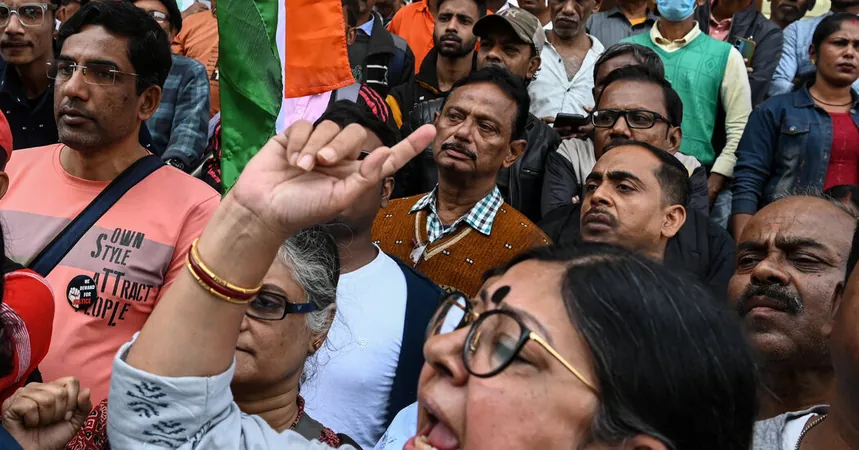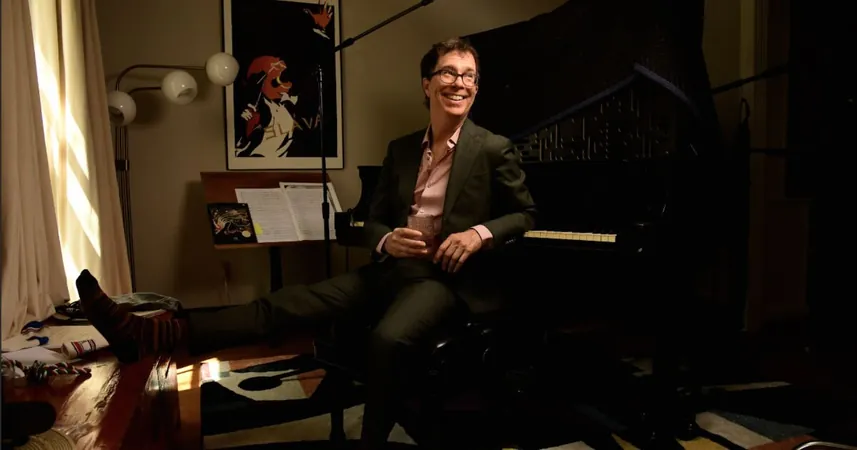
Kolkata Hospital Rape and Murder: Life Sentence for Convict Sparks Outrage and Calls for Justice
2025-01-20
Author: Jia
Kolkata Hospital Rape and Murder: Life Sentence for Convict Sparks Outrage and Calls for Justice
In a heart-wrenching verdict that has reignited conversations about women's safety in India, a Kolkata court sentenced Sanjay Roy to life in prison on Monday for the brutal rape and murder of a trainee doctor. This case, which unfolded in August, has sent shockwaves across the nation, highlighting the entrenched issues of violence against women.
The victim, a 31-year-old junior doctor, was found in a seminar hall at a university hospital, where she had been sleeping after a long shift. Initial reports indicated that she had been viciously raped and strangled. The incident stirred widespread protests throughout West Bengal, signaling a deep-seated frustration with the prevailing climate of insecurity for women.
Despite the severity of the crime, the court declined to impose the death penalty, a decision that has left the victim’s family and activists disheartened. India's Central Bureau of Investigation, akin to the F.B.I, along with the victim's relatives and Chief Minister Mamata Banerjee, had fervently advocated for capital punishment. The court, however, concluded that the circumstances did not meet the legal definition of the "rarest of the rare" cases warranting death.
“I am truly saddened that justice has not been fully served,” remarked Rekha Sharma, former chief of the National Commission for Women. She pointed towards deficiencies in the Kolkata Police's handling of the case, questioning their commitment to justice. Mr. Roy, a former volunteer officer with the police, maintained his innocence throughout the proceedings, claiming he was framed and coerced into confessing.
The shocking nature of this crime drew parallels to the 2012 Delhi gang rape case, which also sparked nationwide outrage and massive protests. In response to the Kolkata incident, thousands of doctors in the city went on strike, calling for safer working environments and better treatment for the victim's family. Demonstrators also expressed their anger over what they believed to be systemic corruption within the medical college and the police force, which they felt had failed in their duty to protect.
Former civil servant Jawhar Sircar, who has been vocal in criticizing the state government's handling of the case, suggested that the public perceives the criminal justice outcome as only partial justice. “People believe that this is merely a scapegoat and that the real issues of corruption and complicity remain unaddressed,” he stated.
In the wake of the sentencing, sentiments amongst protesters remained charged with a call for substantial reforms rather than superficial justice. Many see this case as a symptom of a larger malaise in Indian society, with a critical view on the political apparatus and law enforcement's commitment to safeguarding the rights of women.
As the nation grapples with the harsh realities of gender-based violence, the verdict in Kolkata serves as a painful reminder of the work that lies ahead to ensure true justice and safety for all women across India. Will this case finally fuel the fundamental changes needed in society? Or will the cries for justice continue to be swept under the rug?




 Brasil (PT)
Brasil (PT)
 Canada (EN)
Canada (EN)
 Chile (ES)
Chile (ES)
 Česko (CS)
Česko (CS)
 대한민국 (KO)
대한민국 (KO)
 España (ES)
España (ES)
 France (FR)
France (FR)
 Hong Kong (EN)
Hong Kong (EN)
 Italia (IT)
Italia (IT)
 日本 (JA)
日本 (JA)
 Magyarország (HU)
Magyarország (HU)
 Norge (NO)
Norge (NO)
 Polska (PL)
Polska (PL)
 Schweiz (DE)
Schweiz (DE)
 Singapore (EN)
Singapore (EN)
 Sverige (SV)
Sverige (SV)
 Suomi (FI)
Suomi (FI)
 Türkiye (TR)
Türkiye (TR)
 الإمارات العربية المتحدة (AR)
الإمارات العربية المتحدة (AR)